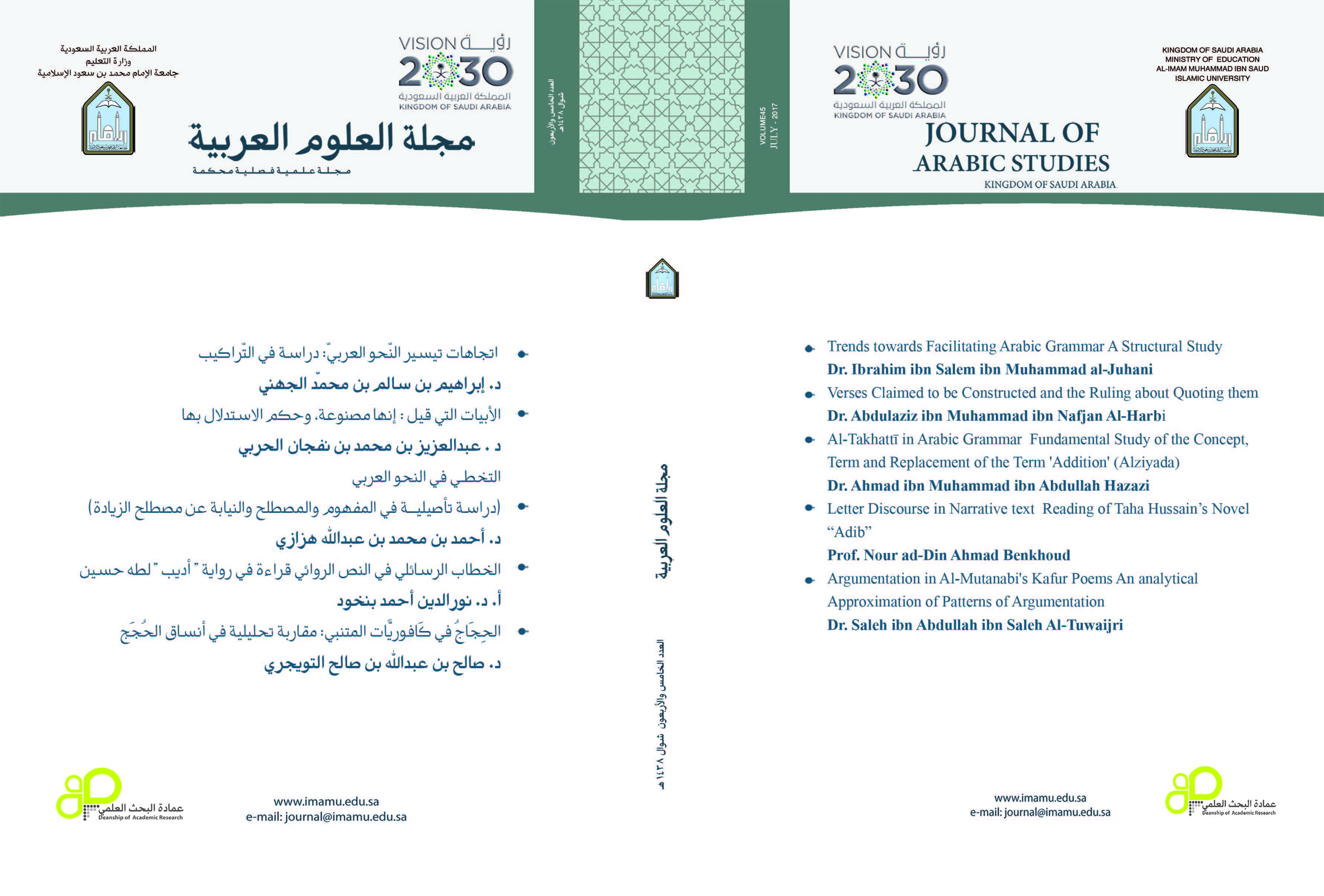Argumentation in Al-Mutanabi's Kafur Poems An analytical Approximation of Patterns of Argumentation
Abstract
Arabic Language has hardly known a poet as skilfull as Al-Mutanabbi, with the ease of handling meaning and the ability to manipulate language styles in various ways in reaching apparent contradiction. This being the case, it is not surprising that Ibn Rashiq (died 456 AH) said: “Then came Al-Mutanabbi; overwhelmed the world and preoccupied all people.”[1] These words will continue to hide much of the untold stories about this bewildering poet. It was the fate of Kafur Al-Ikhshidi, the ruler of Egypt at the time of Al-Mutanabbi, to be exposed to him and to seek his praise. The two men were destined to meet, when each of them had his purposes and goals. For a while, Kafur enjoyed the exceptional eloquence of Al-Mutanabbi’s praise, but soon he was exposed to Al-Mutanabi’s fiery expressions being the target of his anger and tasting the bitterness of his satire. Since Kafur poems combine two contradictory techniques, namely the arts of praise and satire, this intuitively means that one of them was not true. They have become a broad area to demonstrate the mental competence, the parading of the power of eloquence and the practice of humiliating him for his ignorance. Thus, argumentation is the most prominent critical approach which can be applied to the Kafur poems and used to determine the rhetorical strength and argumentative ability in those paradoxical texts. Al-Mutanabbi was able to employ many argumentative techniques in his poems at this phase as he needed to convince and defend his opinion. This research traces these techniques and attempts to reveal them.
[1] al-Qairawani, Ibn Rashiq. al-Omdah fi Sena’at Ashe’r wa Naqdeh. Ed. an-Nabawi Abdulwahed Sha`lan. 1st ed. Cairo: al-Khanji Library, 1420 AH, vol. 1, p. 154




